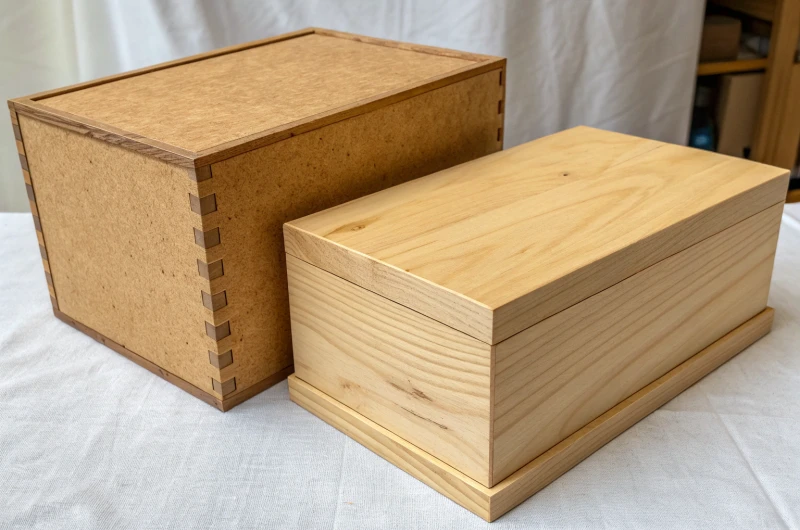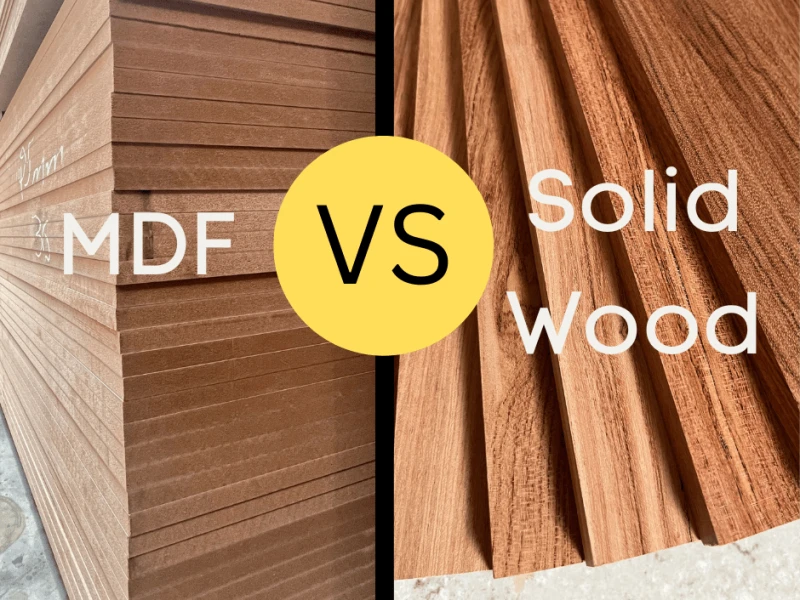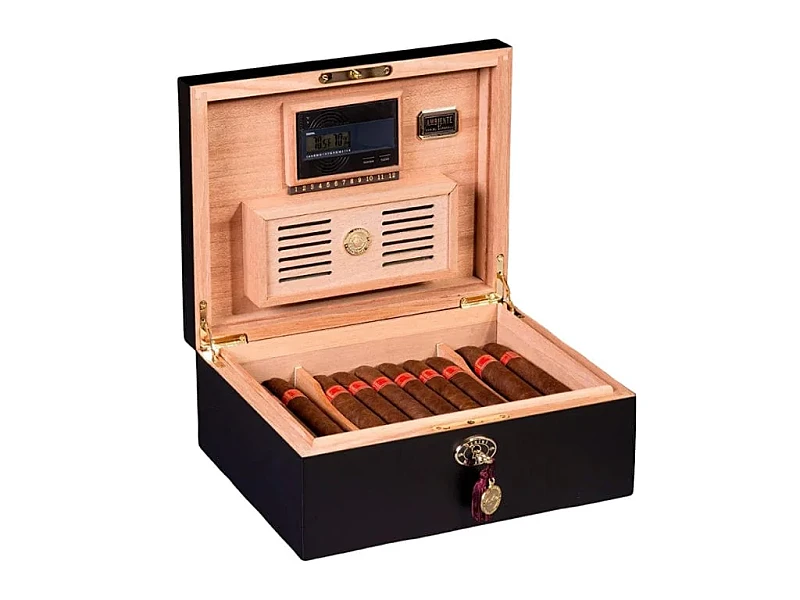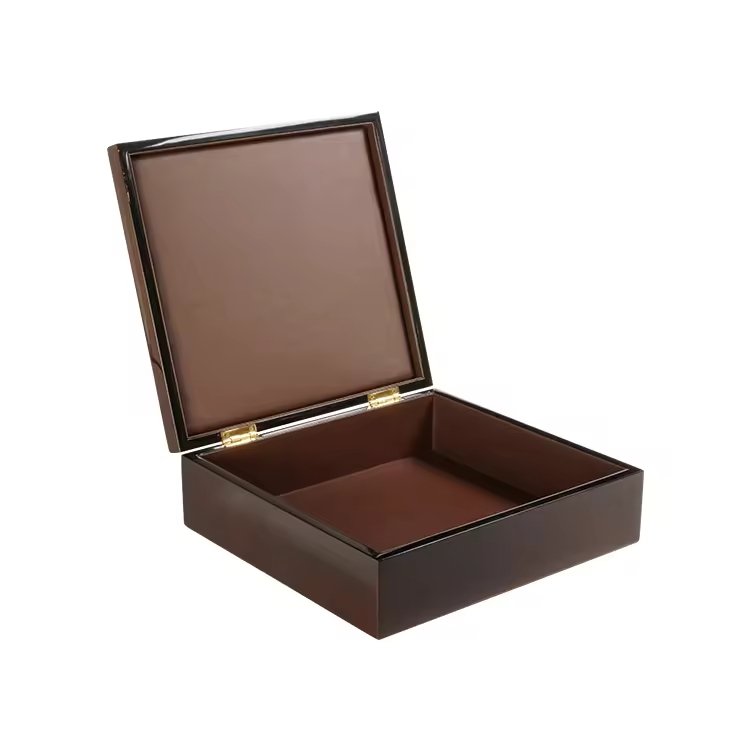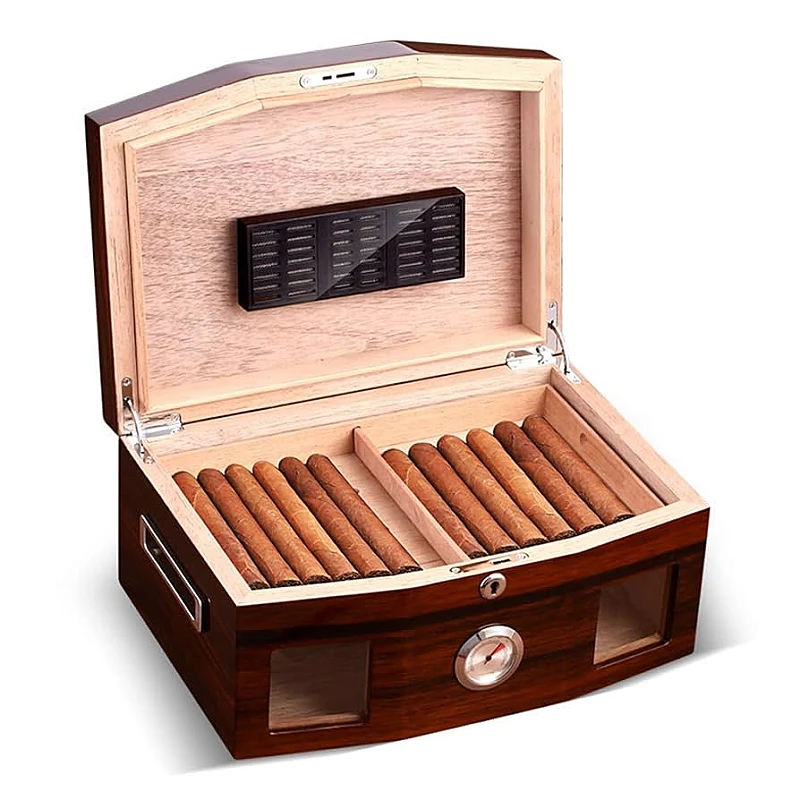
Irregular shapes look attractive at first glance. But behind the design, technical limits and costs often hold brands back from adopting them widely.
It is feasible to make hexagonal or triangular cigar boxes, but these shapes face storage, production, and cost challenges that brands must weigh carefully.
Brands that want collectible or statement packaging may choose unusual structures. Yet practical issues like precision, usability, and scalability always decide the final choice.
Why do some brands consider irregular shapes to create stronger shelf impact?
Many products fight for attention on a crowded shelf. A square box often disappears into the crowd.
Irregular shapes stand out because they break symmetry and attract visual curiosity. They can create stronger shelf presence and brand recall.
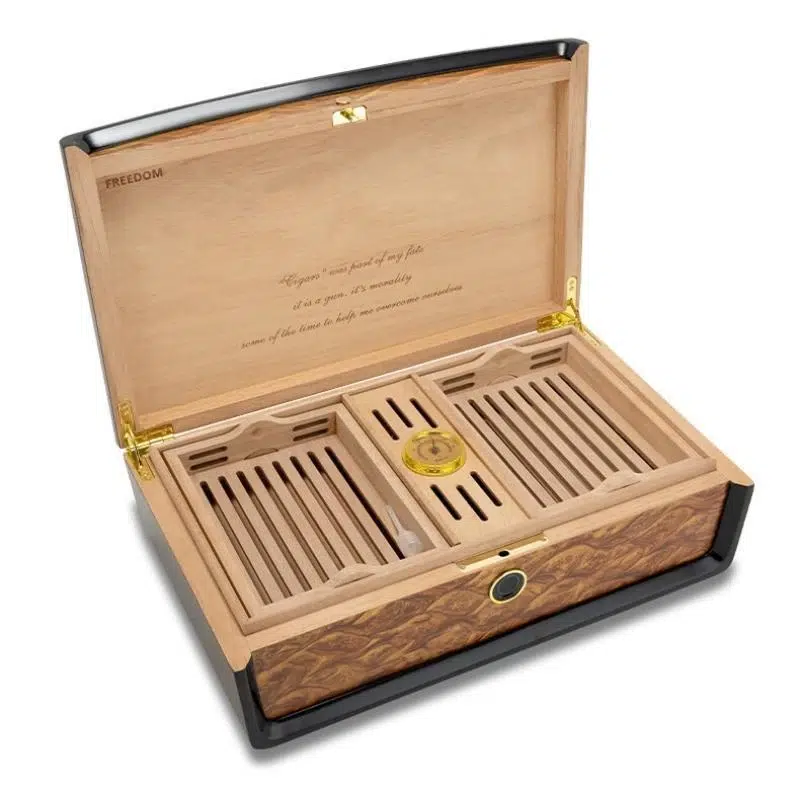
When a hexagon or triangle box sits next to dozens of rectangles, it immediately grabs the eye. This uniqueness gives a sense of exclusivity and boldness. Some luxury brands use such structures for limited editions, special launches, or anniversary releases. The goal is not volume sales, but differentiation.
From my experience, marketing teams sometimes push for unusual forms because they connect shape with storytelling. A hexagon may represent harmony, while a triangle could symbolize strength or tradition. These symbolic messages tie into the brand identity, creating deeper meaning.
Benefits for shelf presence
- Distinctive geometry separates the brand from competitors
- Shapes can symbolize cultural or thematic values
- Creates instant memorability for collectors and casual buyers
I once worked on a triangular cigar box for a Latin American brand. It was displayed as the centerpiece in stores, and people often took photos of it. The brand succeeded in making the box a conversation starter, which was their main goal.
How can unusual geometries affect the practical function of cigar storage?
Cigars are delicate. They require controlled humidity and careful alignment. Odd shapes can complicate both.
Unusual geometries often reduce usable space, disrupt airflow, and make cigar alignment harder compared to rectangular designs.
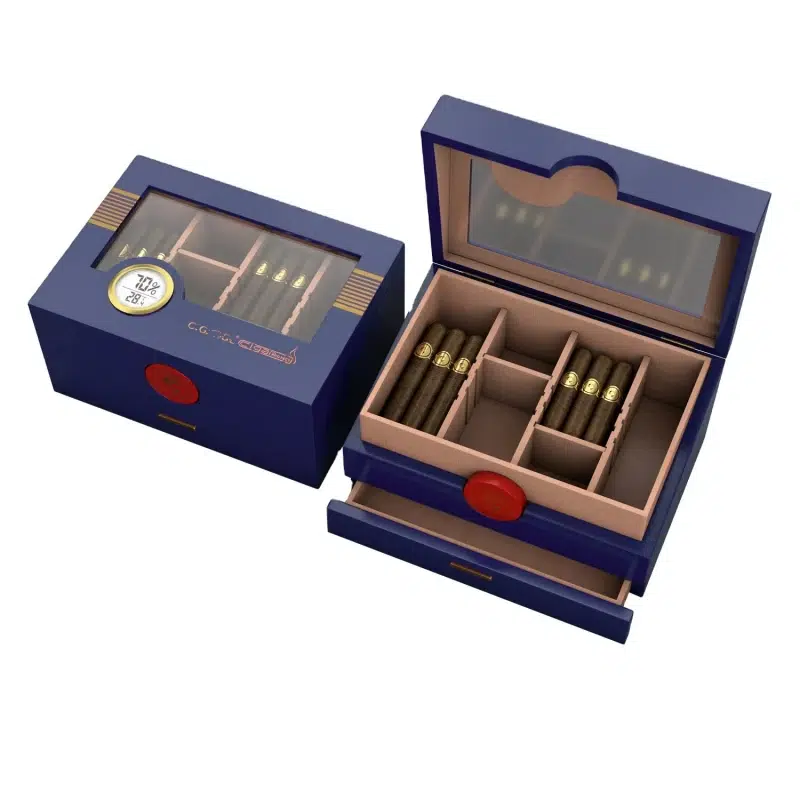
A hexagonal box, for example, does not align well with standard cigar rows. This can lead to wasted internal space. Triangular boxes might squeeze cigars into odd positions, putting pressure on wrappers and causing damage.
Another issue is humidity control. Rectangular boxes allow predictable placement of humidifiers and consistent circulation. Irregular interiors create corners where humidity may not reach evenly. Collectors who use boxes long-term may find irregular designs impractical for actual cigar storage.
Functional challenges of unusual geometries
| Enjeu | Impact | Exemple |
|---|---|---|
| Storage alignment | Wasted space, cigar damage | Triangular tray misfits |
| Humidity flow | Uneven preservation | Hexagonal box with dry corners |
| Refilling humidifiers | Limited placement | Odd corners hard to access |
I have seen collectors enjoy unusual designs visually, but most still store cigars in classic rectangular humidors. They often repurpose irregular boxes as keepsake chests rather than functional humidors. That shows how practicality sometimes loses against shape.
What difficulties arise in woodworking and joint precision with non-rectangular designs?
Woodworking thrives on right angles. Irregular structures break this comfort zone.
Non-rectangular boxes demand higher joint precision, unusual cutting angles, and advanced assembly skills, which increase rejection rates.
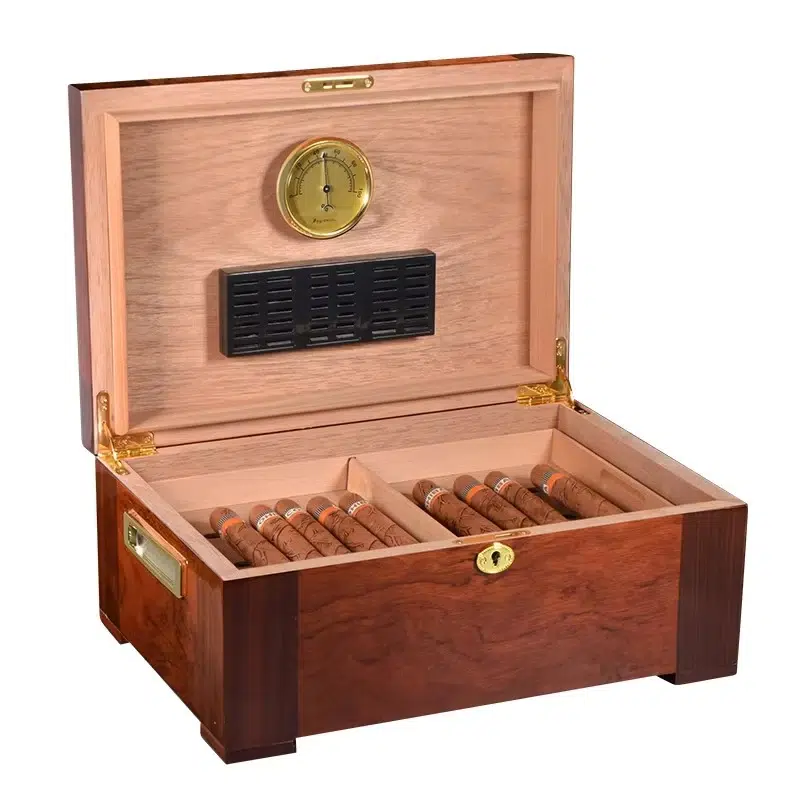
When angles deviate from 90 degrees, joints become harder to cut and align. A hexagon requires multiple 120-degree joints, each needing perfect alignment. A triangle creates sharp corners that can easily chip. Small miscalculations cause visible gaps or instability.
Veneering and finishing also become harder. Wood grain must be cut and applied at irregular angles, which increases waste. High-gloss lacquer exaggerates imperfections, so even the smallest misalignment becomes visible.
Key technical woodworking challenges
- Compound miters instead of straight cuts
- Fragile sharp corners prone to chipping
- More complex clamping during assembly
- Higher error margin in veneering and finishing
I once supervised production of a hexagonal jewelry box with piano lacquer. Even with skilled craftsmen, we rejected nearly 15% of pieces due to visible gaps. Precision becomes much harder when symmetry is unusual.
How does complexity in cutting and assembly influence cost and production time?
Complexity always adds cost. Irregular boxes prove this rule strongly.
Cutting and assembling unusual geometries require more labor, special tools, and longer time. That raises both unit cost and lead time.
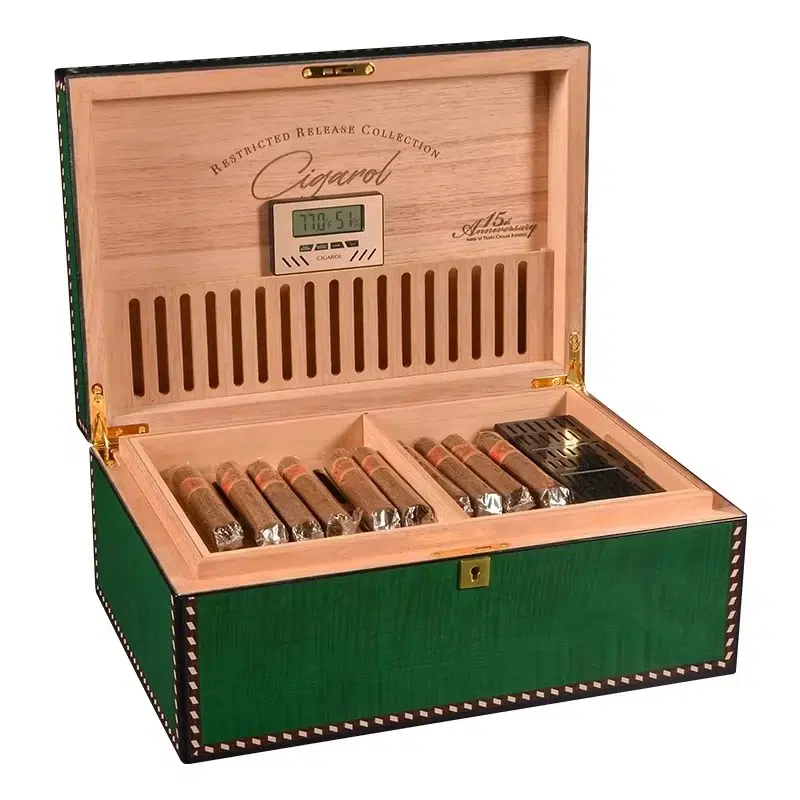
In standard rectangular boxes, cutting and joining are straightforward. Panels can be processed in batches. But irregular forms demand more custom jigs, careful measuring, and slower assembly. Every piece may require hand adjustment.
More waste also increases cost. Odd angles mean more offcuts that cannot be reused. Finishing also takes longer because corners are harder to sand and polish.
Cost implications
| Facteur | Rectangular | Irregular |
|---|---|---|
| Cutting efficiency | Haut | Faible |
| Assembly speed | Rapide | Slow |
| Material waste | Minime | Haut |
| Finishing time | Standard | Longer |
From my experience, a triangular or hexagonal box can cost 30–50% more to produce than a rectangular one of the same size and finish. Lead times can stretch by weeks. For small, limited runs, brands may accept this. For larger orders, it becomes risky.
Why might irregular structures limit scalability or consistency in mass production?
Mass production relies on repetition and efficiency. Irregular designs disrupt both.
Scaling irregular structures often results in higher defect rates, inconsistent quality, and unreliable timelines, which hurt brand reliability.
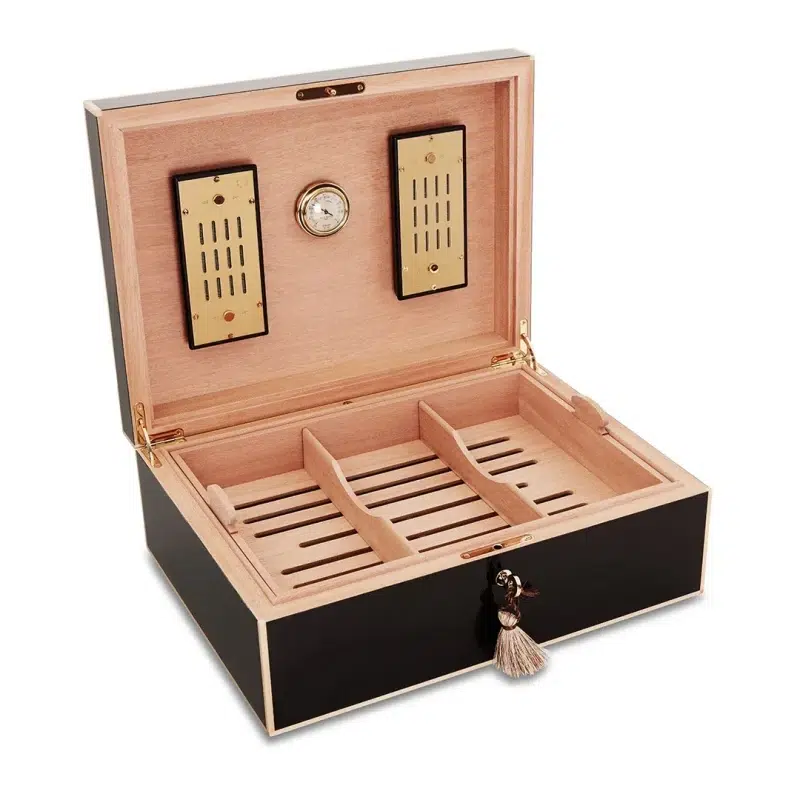
When shapes are unusual, even small variances between batches become obvious. Angles must be exact, or lids may not close properly. In rectangular boxes, small deviations can often be corrected. In irregular ones, mistakes are magnified.
Large-scale orders also require stable supply chains. Many subcontractors are not experienced with odd structures. That leads to longer training and higher risk of delay.
Scalability issues
- Inconsistent alignment in mass batches
- Higher rejection rates, hurting yield
- Slower training for workers and subcontractors
- Limited automation possibilities
I recall a client who wanted 5,000 hexagonal cigar boxes for a holiday campaign. Production slowed down badly, and nearly 20% had visible flaws. The client later switched back to rectangular boxes because they could not afford the risk.
In which scenarios can unique shapes truly add brand value without compromising usability?
Not every case is practical. But sometimes, irregular boxes shine.
Unique shapes can add strong brand value when used for limited editions, storytelling campaigns, or high-end collectibles where usability is secondary.
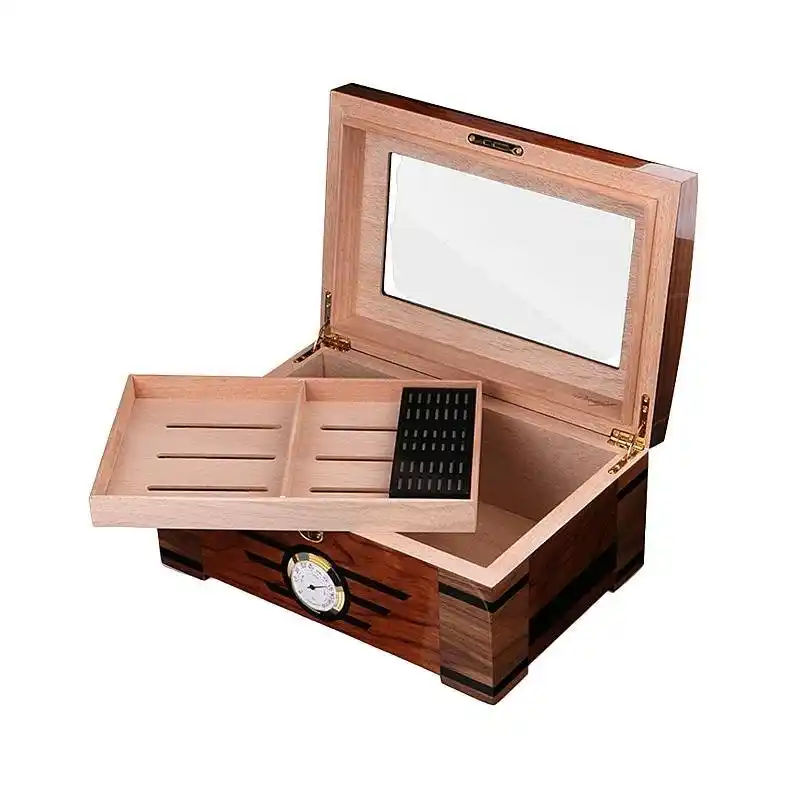
For example, a hexagonal box tied to a cultural symbol can work as a centerpiece. A triangular box for a milestone anniversary can highlight creativity. These designs should target collectors, not everyday smokers.
The key is balance. Irregular boxes must not harm the cigar’s integrity. Inserts or modular trays can help make odd shapes functional. Brands should also limit production numbers, since rarity justifies the higher cost.
Scenarios where irregular works best
- Limited-edition collectible series
- High-value gift packaging with cultural themes
- Display-focused campaigns for retail shelves
- Short runs where scarcity is part of the strategy
One client created a hexagonal cigar box inspired by honeycomb patterns. The design connected with their branding story about “natural harmony.” Collectors bought them quickly, even at a higher price. That case showed me irregular structures can succeed if used with purpose, not as a default.
Conclusion
Irregular cigar box designs are feasible, but they demand higher cost, precision, and limited scalability. They work best in small runs where uniqueness is more important than practicality.
Nom de marque : WoodoBox
Slogan : Boîtes en bois sur mesure, fabriquées à la perfection
Site web : www.woodobox.com
WhatsApp : +86 18359265311

